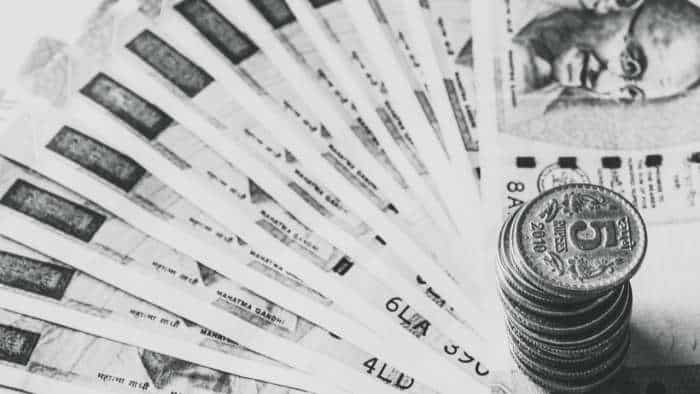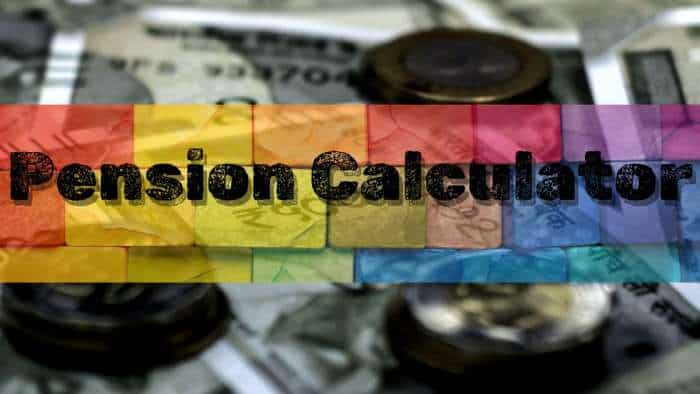Delhi Air Quality Today After Diwali: AQI very poor, check air pollution levels in Noida, Ghaziabad, Gurugram
New Delhi AQI: PM2.5 are fine particles that are 2.5 microns or less in diameter and can travel deep into the respiratory tract, reaching the lungs and entering the bloodstream

New Delhi AQI: The air quality in the national capital on Tuesday morning was recorded in the 'very poor' category. However, the situation a day after Diwali was relatively better than the previous years due to favourable meteorological conditions which diluted the effect of firecrackers and stubble burning. The capital's air quality index (AQI) stood at 326 at 8 am on Tuesday.
Air Quality in Noida, Ghaziabad
The neighbouring cities of Ghaziabad (285), Noida (320), Greater Noida (294), Gurugram (315) and Faridabad (310) reported 'poor' to 'very poor' air quality.
An AQI between zero and 50 is considered 'good', 51 and 100 'satisfactory', 101 and 200 'moderate', 201 and 300 'poor', 301 and 400 'very poor', and 401 and 500 'severe'.
The relatively better air this morning doesn't mean it's good air. The PM2.5 levels at 30 out of the 35 monitoring stations in the capital were five to six times the national standard of 60 micrograms per cubic metre at 8 am.
PM2.5 are fine particles that are 2.5 microns or less in diameter and can travel deep into the respiratory tract, reaching the lungs and entering the bloodstream.
Though people burst firecrackers in several parts of Delhi despite a ban on them, the intensity appeared less as compared to the last two years.
The Delhi government had in September announced a complete ban on the production, sale and use of all types of firecrackers till January 1, 2023, including on Diwali, a practice it has been following for the last two years.
Farm fires raged across Punjab and Haryana on Monday but the wind speed was moderately unfavourable for the transport of smoke. Hence, the contribution of stubble burning to Delhi's pollution (around 10 per cent) was also "not very significant", said Gufran Beig, chair professor, National Institute of Advanced Studies, Indian Institute of Science.
Emissions from firecrackers and farm fires have contributed significantly to Delhi's PM2.5 pollution on Diwali over the years.
Their share this year was relatively less than previous years due to reduced firecrackers bursting and moderately warm and windier conditions which prevented rapid accumulation of pollutants.
Diwali was celebrated on November 4 in 2021 and on November 14 in 2020 when temperatures were considerably low and winds calm.
According to the Early Warning System of the Indian Institute of Tropical Meteorology (IITM), the air quality is predicted to remain in the 'very poor' category during the day (Tuesday) and is likely to improve slightly over the next two days.
Delhi recorded a 24-hour average AQI of 312 at 4 pm on Monday -- the second best for Diwali day in seven years.
Before this, the city recorded an AQI of 281 on Diwali in 2018.
Delhi had recorded an AQI of 382 on Diwali last year, 414 in 2020, 337 in 2019, 319 in 2017, and 431 in 2016, according to Central Pollution Control Board data.
On Sunday evening, the city reported a 24-hour average AQI of 259, which was the lowest for Diwali eve in seven years.
"The share of PM2.5 in Delhi's air has increased which is indicative of contribution from firecrackers and stubble burning," said Beig, also the founder project director of SAFAR, a forecasting agency under the Union Ministry of Earth Sciences.
"Though the active fire counts have doubled, the wind direction is north westerly and the wind speed is moderate (not very favourable for the transport of smoke from farm fires). Hence, the contribution of stubble burning is not very significant," he said.
Stubble burning is likely to account for 12 to 15 per cent of Delhi's PM2.5 solution on Tuesday, he added.
The Indian Agricultural Research Institute reported 1,019 farm fires in Punjab, 250 in Haryana and 215 in Uttar Pradesh on Monday evening.
The System of Air Quality and Weather Forecasting and Research (SAFAR) had earlier predicted that the air quality in Delhi will be recorded in the 'very poor' category if no firecrackers are burst.
In case firecrackers are burst like last year, the air quality may plunge to 'severe' levels on the night of Diwali itself, it had said.
Delhi Environment Minister Gopal Rai had earlier said bursting of firecrackers on Diwali in the city will attract a jail term up to six months and a fine of Rs 200.
He had said production, storage and sale of firecrackers here will be punishable with a fine of up to Rs 5,000 and three years in jail under Section 9B of the Explosives Act.
A total of 408 teams have been constituted to implement the ban. The Delhi Police has set up 210 teams under assistant commissioners of police, the Department of Revenue has set up 165 teams and the Delhi Pollution Control Committee has constituted 33 teams.
With PTI inputs
Get Latest Business News, Stock Market Updates and Videos; Check your tax outgo through Income Tax Calculator and save money through our Personal Finance coverage. Check Business Breaking News Live on Zee Business Twitter and Facebook. Subscribe on YouTube.
RECOMMENDED STORIES

Top 5 ETFs That Have Given Highest Returns in 1 Year: Rs 1,00,000 one-time investment in No. 1 ETF has grown to Rs 1,77,286

Retirement Planning: How one-time investment of Rs 11,00,000 can create a Rs 3,30,00,000 retirement corpus

Income Tax Calculations: Is your annual salary Rs 6.75 lakh, Rs 9.25 lakh, Rs 14.50 lakh, or Rs 18.50 lakh? Know how much tax you will pay in old and new tax regimes

Monthly Pension Calculations: Is your basic pension Rs 25,000, Rs 45,000, or Rs 55,000? Know what can be your total pension as per latest DR rates

SBI Senior Citizen FD Rates: Want to invest Rs 3,00,000 in SBI FD? You can get this much maturity amount in 1 year, 3 years, and 5 years

SBI 5-Year FD vs SCSS: Which investment option can offer better returns with quarterly payments on Rs 6,00,000?
03:14 PM IST









 GRAP 3 curbs invoked in Delhi-NCR amid rise in pollution
GRAP 3 curbs invoked in Delhi-NCR amid rise in pollution India to achieve 20% ethanol blending target in 2 months: Nitin Gadkari
India to achieve 20% ethanol blending target in 2 months: Nitin Gadkari 2.6 lakh vehicles fined more than Rs 260 crore over pollution in Delhi
2.6 lakh vehicles fined more than Rs 260 crore over pollution in Delhi Delhi Air Pollution: Air quality improves, 'moderate' air quality after weeks
Delhi Air Pollution: Air quality improves, 'moderate' air quality after weeks Delhi AQI Update: Slight improvement but still in 'poor' category
Delhi AQI Update: Slight improvement but still in 'poor' category